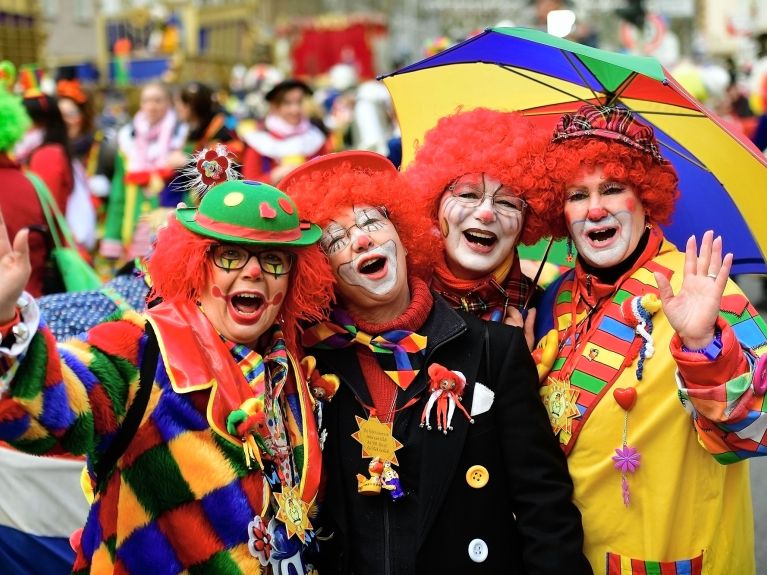Carnival curiosities
A glossary for the carnival season in Germany

Karneval, Fastnacht, Fasching
The German names for carnival can be confusing. In North Rhine-Westphalia people call this period of revelry “Karneval”. In Rhineland-Palatinate, Hesse and Baden-Württemberg, on the other hand, people celebrate “Fastnacht” or “Fas(se)nacht”, while the so-called fifth season is mainly referred to as “Fasching” in Bavaria and Saxony.
Weiberfastnacht, Weiberfasching – or crazy Thursday
On the Thursday before Ash Wednesday, at least in carnival strongholds like Cologne or Munich, it is the women who take control – after all, the world is meant to be turned on its head during this time. City halls are symbolically stormed by women, and mayors surrender the keys of the city as a sign of capitulation. Men who wear a suit to work on this day are likely to have their ties cut off by female revellers and symbolically lose part of their power. Experts don’t wear their favourite tie on this day.
Kamelle
“Kamelle, Kamelle,” shout the people of Cologne when the carnival procession approaches. They are referring to the small, sticky sweets that are traditionally thrown into the crowd from the passing carnival floats. They are now increasingly being replaced by chocolate wafers, chewing bars, popcorn and gummy bears. The “Kamelle” is a modification of “Karamelle” (caramel), which stems from the carmelized sugar used in traditional sweet-making. The origins of this generous distribution of sweets could lie in the imminent period of fasting: everyone wants to enjoy some sweet treats before they have to do without.
Bütt
The “Bütt“ (the Rhenish dialect word for a cask, vat or tub) is a barrel-shaped lectern. Speakers stand in this container and present bitingly ironic carnival addresses. There have been several attempts to explain this – from an empty wine barrel that gives rise to feelings of bitterness to references to Diogenes the Cynic, who famously lived in a storage jar, or the tub used to wash dirty washing.
Carnival medals
Originally these were devised as a parody of military pomposity. They were awarded to the sponsors of carnival associations and artists. The Medal for Combating Deadly Seriousness is well-known in Germany and is conferred on prominent public figures by the carnival association in Aachen.
© www.deutschland.de


